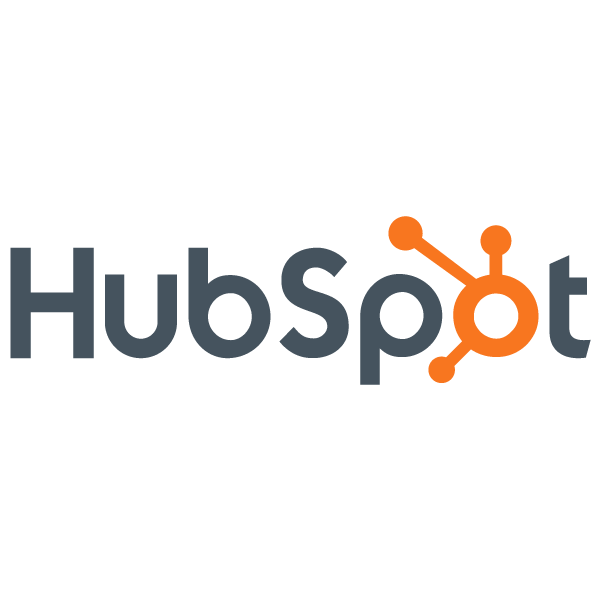
Writers are creative by nature.
We think about stories, narratives, characters, and so on. We're right-brained creatures, thinking about art and how we can craft better, more intriguing worlds.
But if we want to do that for a living, we have to engage with the left side of our brain at some point.
Even the greatest writer in the world is going to fail if he or she doesn't have a focus on getting their stories in front of the right eyeballs. Building an audience is the most important piece of the puzzle for creative professionals. And yet, so many of us simply don't know how to do it effectively.
The good news is that marketing has tipped in our favor in recent years. Instead of trying to hammer our potential audience with hard sales pitches, successful brands have pivoted to softer forms of marketing - namely, content marketing.
Content marketing is intended to build your brand's reputation by offering valuable and authoritative content that readers will engage with before you lead them to the sale. And it works: one study showed potential customers were 131% more likely to buy from a brand that engaged them with content marketing.
This is undoubtedly good news, but that doesn't mean you automatically know how to do it. And that's where HubSpot comes into play.

What is HubSpot?
On its surface, HubSpot is a suite of marketing and sales tools offered for free that allow marketers to keep track of campaigns and sales funnels.
But when you scratch a little deeper, you can find an immense resource you can build your entire content marketing strategy around. In addition, HubSpot offers valuable resources and guides to help you know the ins and outs of content marketing in 2020.
At its core, content marketing is storytelling across media. It's an opportunity to craft narratives - but instead of creating stories about characters or fictional worlds, you're creating stories about you and your brand.
And HubSpot can help.
HubSpot can show you how to build a content marketing strategy
Before you even create a HubSpot account, you can visit a handful of useful resources on their site.
On first glance, it appears overwhelming. But let's focus on two specific areas: the blog and the Ebooks, Guides, and more sections.
The blog is heavy on listicles - one glance and you'll see numbers in every direction. Normally, that would be annoying. But in an educational sense, it's very important to craft content this way. It offers an organized, easy-to-digest method of translating information.
HubSpot's blog covers the basics: different tools and templates to plan your social media content, creating a successful email marketing strategy, even how to make your Instagram Stories more professional.
One nice touch on HubSpot's blog is organization by expertise. You can filter blog posts by Beginner, Intermediate, or Advanced levels. This helps everybody out when perusing the site: those of us who feel they have a good grasp on marketing can skip the easy lists and go straight to advanced tactics, while beginners who might be overwhelmed by all the information and omit the noise and focus their attention on the basics.
Another incredibly valuable resource for writers is the Ebooks, Guides, and more section.
This area is loaded with free guides, templates, and more designed to give you a more intensive look at various topics. The content marketing workbook is geared towards beginners, but it is more than 30 pages of useful content, packaged in an easy-to-understand way.
Another great subsection of the guides is the Blogging area, full of ebooks on how to use Wordpress, how to build a successful blog (with a detailed, 8-part planner!), and even templates to create engaging content on your blog.
As far as free content goes, HubSpot is really set apart from a lot of areas simply due to the wealth of content they have available for you for free. Yes, you do need to fill out a form whenever you want to download a guide, but it still requires zero purchase from you.
And because HubSpot has been around for 15 years as of this writing, they've established themselves as an authority who knows what they're talking about.
Yet, a free HubSpot account can give you access to even more.
Why HubSpot could manage your brand's content marketing
HubSpot really did a great job in building a free tool that almost anybody interested in marketing can incorporate into their own processes.
If you want to succeed as an author in 2020, you have to view yourself as a content marketer. There's just no ignoring it anymore. And HubSpot has you covered as you make that switch.
Expanding your audience through content marketing may involve having to reach out to other creators who have audiences. You can create new content for them in the form of guest posts - and getting enough guest posting opportunities to move the needle can take a little time and effort. Offloading your brain power by using a tool to manage your outreach efforts is a must. HubSpot can handle that outreach management, allowing you to track your outgoing email efforts and replies through its software.
This software can even integrate into other platforms. My HubSpot account is linked with my Gmail account, so my correspondence with clients and prospects is all tracked through HubSpot automatically. I don't have to think twice about who I need to follow up with and when, because the HubSpot integration tracks it for me.
Another very important aspect of content marketing is reporting. You need to know how your efforts are paying off. This could be in traffic numbers rising, or an increased number of closed deals. With HubSpot, you have this reporting in one place and it's easy to view, analyze, and manage.
Social media analytics are also important. A huge part of content marketing is building a social media presence. HubSpot can show you where your engagement and your traffic is coming from, so you can quickly and easily know which platforms are paying off and deserve more of your effort.
HubSpot could be the perfect match for these three reasons
This whole article might read like a paid sponsorship for HubSpot, but it's not. I'm an author and content marketer myself, and I'm a big fan of this software.
To me, it fills three big needs that I have, which make it a perfect fit:
- It's free. Let's face it. None of us have big budgets. Especially when starting out as an author and a brand, you need to keep costs down wherever you can. The fact that this doesn't cost you a dime is a huge plus.
- It's comprehensive. That said, it doesn't skimp on the features or the integration. Other tools will charge you a few bucks per month for some of the features that HubSpot offers for free. By covering your content needs, your social media needs, and even your email marketing needs, HubSpot can really work for anyone.
- HubSpot is a proven brand. There are more fly-by-night marketing services in the world than there are stars in the sky, it seems. Knowing that HubSpot is still an active presence in the marketing world after 15 years tells me that they are good at what they do. That reputation goes a long way.
One caveat, though...
Even though HubSpot is a very comprehensive resource, it does have one drawback: it's a very comprehensive resource.
If you're an author who has only focused on storytelling your whole life, stepping into HubSpot's marketing world is likely going to overwhelm you. Inbound marketing? CMS? CRM? Onboarding? What are all these terms?
The best advice I can give you is to take it one thing at a time. Pretend you're wearing blinders. Focus on the blog and the resources first, before creating an account and diving into reporting. Get your feet wet first, and then as you learn the terminology, you can start expanding your view.
Is it a lot of effort and time? You bet it is. But if you can focus your efforts on building up your content marketing strategy, you could see real results: even just blogging regularly can increase your Google visibility by as much as 434%!
It's 2020 and as a writer, you are now a brand. Start taking it seriously and start perusing the resources that HubSpot has to offer today.

